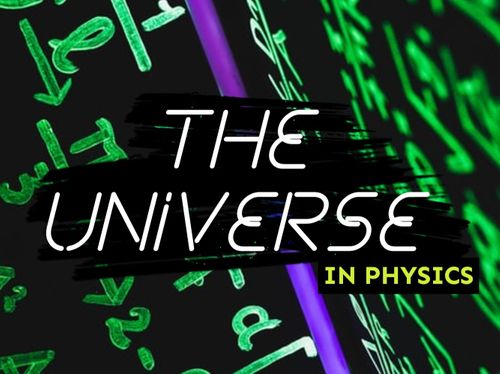Inside the mind of theoretical physicist Frank Wilczek
Sep 03, 2021 · 2 mins read
0
Share

Frank Wilczek is a self-described “intellectual adventurer” who’s better known as a Nobel Prize-winning physicist at MIT. That may sound serious, but his personal motto is “Think, Play, Repeat” – because if you stay playful and curious, nothing feels like “work”.
Save
Share
Recently, Wilczek has been captivated by the sight of his young grandchild getting to grips with the world around him and establishing a clear sense of self. This is a central area of interest for Wilczek and also the subject of his latest book, Fundamentals: 10 Keys to Reality.
Save
Share
Fundamentals are basic principles that help us understand how the world works but cannot be reduced any further. The second law of thermodynamics (entropy), for example, may be illuminating but it can be explained in more basic terms like atomic structure and probability.
Save
Share
The most basic question you can ask is, “What happens next?” This is how scientists established the laws of physical reality e.g. space, time, matter. Wilczek believes the fact that such fundamentals even exist, and that there are so few of them, is a “profound discovery”.
Save
Share
When deciding what to work on next, Wilczek simply asks himself three questions: 1) Is it important? (i.e. “fundamental” or useful) 2) Can I do something about it? 3) Is it irritating? (i.e. Would fixing this make things a little better?)
Save
Share
Wilczek believes that computers will inevitably be able to think for themselves. The working hypothesis of neurobiology (as developed by Francis Crick) is that mind emerges from matter. There’s no evidence to the contrary, so what’s to stop us recreating the mind’s complexity?
Save
Share
We’re past the point where computers can do things once thought to be unique to humans. The question is whether AI can shift from beating people at games like chess or Go (which merely requires knowledge) to creating new games that will entertain us (which requires wisdom).
Save
Share
Wilczek grew up Catholic and believes that religion still has cultural value. Religion contains a lot of wisdom about making sense of the world that you won’t get from science (like understanding right from wrong). It also helps you relate to different perspectives.
Save
Share
The probability of extraterrestrial intelligence is abundant, according to Wilczek. The conditions for life are not so complicated that they can’t be reproduced on countless solar planets. The big hurdle is evolving from multicellular organisms to intelligent life.
Save
Share
Ultimately, there’s no “Theory of Everything” that covers the fundamental laws of nature. The closest practical approximation is Core Theory (which accounts for all particles and forces). Even for an intellectual adventurer like Wilczek, life is full of philosophical loose ends.
Save
Share
0